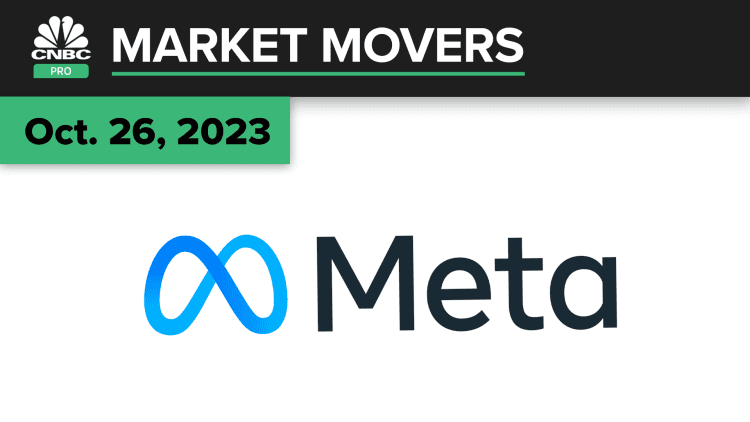
The Nasdaq Composite dropped deeper into correction territory on Thursday as Meta became the latest tech company to offer a forecast that didn't quite live up to investors' expectations.
The tech-heavy index lost 1.76%, closing below its 200-day moving average and ending at 12,595.61. The S&P 500 dipped 1.18% to finish the session at 4,137.23, while the Dow Jones Industrial Average slipped 251.63 points, or 0.76% to 32,784.30. During Thursday's session, the S&P 500 dipped into correction territory at its low of the day — and it ended the session nearly 10% off from its closing high, notched in July.
Following a 2.4% decline on Wednesday, the Nasdaq Composite is now officially in correction territory, down more than 10% from its high close for the year in July.
"Wall Street hasn't been impressed with big-tech earnings so far and the remaining ones, Amazon and Apple will likely struggle given the weakening outlook for the US economy," said Ed Moya, senior market analyst at Oanda. "Strong demand from today's seven-year auction shows you investors are still concerned with all the geopolitical risks that remain on the table."
Facebook-parent Meta beat on top and bottom lines in the third quarter, but the company noted that it was seeing some advertising softness so far this quarter. Investors also worried about cost control with the company's Reality Labs division, which shed $3.7 billion throughout the quarter. Meta shares slid 3.7%.
The moves follow a brutal trading session Wednesday, which was partly driven by a 9.5% decline in Google-parent Alphabet. Alphabet's Class-A shares suffered their worst day since March 2020 on Wednesday after the company reported revenue in its Google cloud unit that came in below analyst estimates.

The Nasdaq on Wednesday recorded its worst day since Feb. 21. The correction since the summer is being driven by a surge in bond yields with the 10-year Treasury yield at one point this month crossing 5%. The 10-year yield slipped 10 basis points to 4.84% Thursday, but that failed to stem the market sell-off.
The market didn't get any help from the third-quarter gross domestic product report, which came in much stronger than expected. U.S. GDP grew at a 4.9% annualized clip from July through September, while economists polled by Dow Jones forecast 4.7%.
Major earnings are also on the horizon, with Amazon scheduled to post results after the close.

